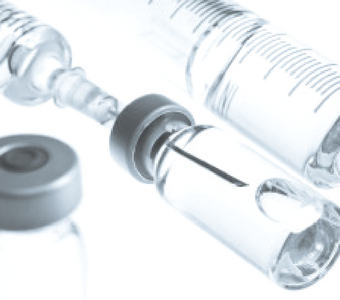Puma Biotechnology (NYSE:PBYI) made waves last month when it uplisted to the NYSE and initiated a substantial capital raise, increasing cash and equivalents to approximately $162 million, and on Wednesday, Puma reported its 3Q financial results. More importantly, however, Puma updated investors on forthcoming development advances for its cancer drug PB272 (neratinib). Besides reporting a net loss in the third quarter of $25.9 million ($1.29 per share) and $52.4 million in the first nine months of 2012, Puma guided for the commencement of four new neratinib trials in the next year and the completion of three late-stage studies. Based on details from the report (below) the company will have a busy twelve months preparing for – and reporting on – pipeline advances; it should be a telling time for neratinib and Puma.
Our clinical development plan includes (i) initiating our Phase III clinical trial of PB272 in combination with chemotherapy in HER2+ metastatic breast cancer patients who have failed previous HER2 directed therapy, which we anticipate will occur later this year or early next year; (ii) completing the ongoing Phase II trial of neratinib in combination with temsirolimus in fourth line HER2+ metastatic breast cancer, which we anticipate reporting additional data from later in 2012, and subsequently initiating the Phase III trial of the combination of neratinib plus temsirolimus, which we anticipate will begin in 2013; (iii) completing the ongoing Phase II trial of PB272 in patients with HER2+ metastatic breast cancer that has metastasized to the brain, which we also anticipate reporting data from in 2013; (iv) completing our ongoing Phase II trial of PB272 as a neoadjuvant treatment for patients with HER2+ breast cancer, which we expect to report data from in 2013; (v) initiating a Phase II trial of PB272 in patients with HER2 mutated non-small cell lung cancer, which we expect will occur later this year or early next year; and (vi) initiating a Phase II trial of PB272 in breast cancer patients with a newly identified genetic mutation, which we also expect will occur later this year.
Neratinib was licensed from Pfizer (NYSE:PFE) in August of 2011, and as part of the license structure, Pfizer is subsequently obligated to continue paying for some trial expenses. Puma’s most recent 10-Q states, “This [license] capped our “out-of-pocket” costs incurred beginning January 1, 2012, in conducting these existing trials. We anticipate that we will reach the cost cap during the fourth quarter of 2012 which will result in a reduction of expenses related to these existing clinical trials, and hence a reduction in our R&D expenses, as the licensor will be responsible for such costs.” New trials will not be covered, but the agreement represents a noteworthy expense reduction. Puma built a substantial trove of cash with its latest raise; it may need that in the long run to fund an aggressive R&D program, but it should be sufficient to last into 2014.
Neratinib demonstrated notable efficacy in earlier HER2+ breast cancer trials, and the market is clearly considering the drug’s long-term possibilities. Although thinly traded, a $540M market capitalization for a mid-stage development company suggests there is strong belief in neratinib’s clinical and market potential. With numerous catalysts on the horizon, PBYI may reverse its recent down trend and begin a move higher, influenced greatly by new analyst insight. PBYI is only covered by three major banks, but additional coverage will lead to greater visibility; current shareholders will be well-aware that Puma’s founders built Cougar Biotechnology before selling it to J&J (NYSE:JNJ) for $1B in 2009, and we expect interest to grow as investors notice this NYSE-listed biotech. Read more in PropThink’s previous article.



